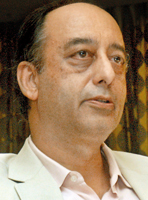News
Lanka scores low marks for technical knowledge in UN report
Sri Lanka is falling behind in terms of the technical knowledge necessary to compete successfully in the global economy, a UN report has revealed.
Focusing on bridging regional disparities for human development, the Sri Lanka Human Development Report released by the United Nations Development Programme paints a bleak picture of the country.
According to the report, Sri Lanka has slid down the World Bank’s Knowledge Economy Index (KEI) which is important to measure the robustness of a ‘technical’ economy. In 2000, Sri Lanka was placed 87th in the index, but in 2012, Sri Lanka ranked 101 among 145 countries.
A scrutiny of the indicators used to construct the KEI reveals that Sri Lanka performs well in terms of rule of law and gross secondary school enrolment rates but the problem is with the information and communications technology.
UNDP Regional Director Ajay Chhibber, who was in Sri Lanka to launch the report told the Sunday Times in an interview that the report looked at the whole question of disparities in society. “I had thought that the biggest problem in terms of economic development would be in the north but there are parts of Sri Lanka which were not affected by the conflict that are also lagging behind,” he said.
Mr. Chhibber also said while the report showed unemployment was declining, youth unemployment was on the is rise and was around 14 per cent as compared to overall unemployment rate of around five per cent.
“There is an obvious need to align the country’s university system with the needs of a modern economy, the report said.
It added that Sri Lanka did have a reputable tertiary education system, its capacity was inadequate and it served only a small proportion of the population. In 2009, only 3.6 per cent of 20-24 year olds were enrolled in a university, with an additional 3.6 per cent in the same age enrolled in technical and vocational courses.
Secondly around 20,000 students from the roughly 330,000 people in the 20-24 age group entered state universities in 2008 while most of those qualified to enter could not do so due to capacity constraints.A second and related issue is that universities are too heavily focused on non-technical disciplines that do not generate skills required by a modern economy.
It added that Sri Lanka urgently needs to develop a higher education system that produces graduates capable of taking on complex tasks, with the ability to learn and adapt quickly, undertake independent research, and generate a steady stream of world class technical innovations.
The mismatch between Sri Lankan graduates’ competencies and job requirements, according to the report, is a major reason why they are unable to find jobs in the industrial sector.
It added that in 2009, for example, more than 100,000 students, around 83 per cent of those who qualified for university education were forced to abandon their ambitions to study because state-funded universities could not accommodate them.
“Those from highly affluent families opted to go to schools outside Sri Lanka. Others, unwilling to sacrifice their desire for higher education and willing to pay for it, enrolled in one of around 30 degree-awarding institutions and 180 affiliated with private universities outside Sri Lanka.”
It added that these institutions have gained public attention due to their high cost and questionable quality. The absence of an accreditation system for them makes it difficult to regulate their quality, and there are no proper quality assurance, control and monitoring mechanisms.
Follow @timesonlinelk
comments powered by Disqus
























